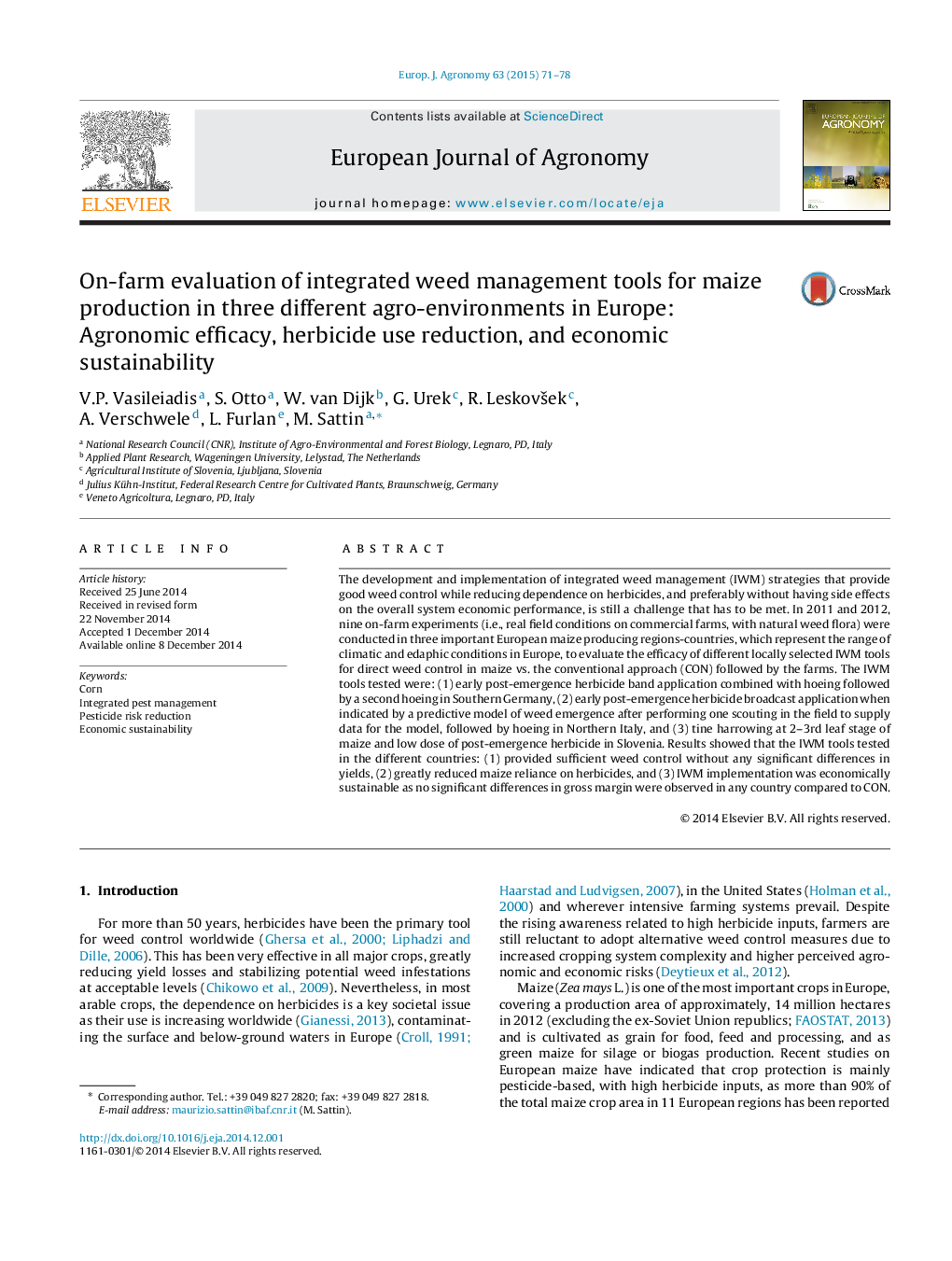| Article ID | Journal | Published Year | Pages | File Type |
|---|---|---|---|---|
| 6374288 | European Journal of Agronomy | 2015 | 8 Pages |
Abstract
The development and implementation of integrated weed management (IWM) strategies that provide good weed control while reducing dependence on herbicides, and preferably without having side effects on the overall system economic performance, is still a challenge that has to be met. In 2011 and 2012, nine on-farm experiments (i.e., real field conditions on commercial farms, with natural weed flora) were conducted in three important European maize producing regions-countries, which represent the range of climatic and edaphic conditions in Europe, to evaluate the efficacy of different locally selected IWM tools for direct weed control in maize vs. the conventional approach (CON) followed by the farms. The IWM tools tested were: (1) early post-emergence herbicide band application combined with hoeing followed by a second hoeing in Southern Germany, (2) early post-emergence herbicide broadcast application when indicated by a predictive model of weed emergence after performing one scouting in the field to supply data for the model, followed by hoeing in Northern Italy, and (3) tine harrowing at 2-3rd leaf stage of maize and low dose of post-emergence herbicide in Slovenia. Results showed that the IWM tools tested in the different countries: (1) provided sufficient weed control without any significant differences in yields, (2) greatly reduced maize reliance on herbicides, and (3) IWM implementation was economically sustainable as no significant differences in gross margin were observed in any country compared to CON.
Related Topics
Life Sciences
Agricultural and Biological Sciences
Agronomy and Crop Science
Authors
V.P. Vasileiadis, S. Otto, W. van Dijk, G. Urek, R. Leskovšek, A. Verschwele, L. Furlan, M. Sattin,
